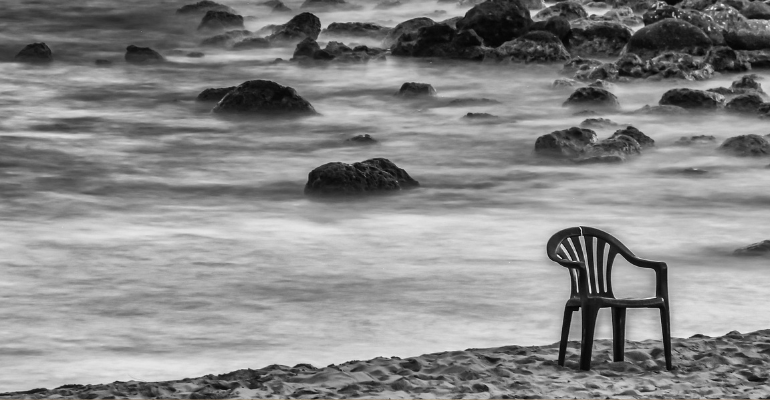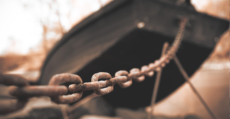In the name of Allāh, ar-Raḥmān (the most merciful), ar-Raḥīm (the bestower of mercy).
All praise is for Allāh, the Lord of all creation; al-Karīm (the generous) al-Mannān (the bestower of blessings).
To him belongs all praise, to him belongs all gratitude, and to him belongs all sovereignty.
I bear witness that none has the right to be worshipped except Allāh, and I bear witness that Muḥammad is his worshipper and messenger.
We live in a society of relative prosperity, where few among us truly fear poverty or hunger. We should always remind ourselves to be grateful and express our gratitude to Allāh so that he may continue to bestow his favours upon us.
{And [remember] when your Lord proclaimed: ‘If you are grateful, I will surely increase you [in favour]; but if you deny, indeed, my punishment is severe} [14:07]
Yet, despite this relative prosperity, we find ourselves in a modern society filled with contradictions and paradoxes.
- We have more wealth than ever, yet poverty remains widespread.
- Food is abundant – stockpiled in surplus – yet people are hungry, many searching for food banks.
- We champion freedom, yet people feel increasingly constrained.
- Medical advancements have progressed, yet illness is more prevalent.
- Industry and manufacturing have expanded, yet people struggle to find jobs.
- Social media and networks have connected us, yet loneliness has never been more pervasive.
- People and friends surround us, yet a deep sense of isolation lingers.
- We live in security, yet many feel more vulnerable than ever.
This is the paradox of modern society.
Today [1], I want to focus on a pressing issue – alienation, loneliness, and vulnerability.
As we celebrate with our families and friends, exchanging visits and gifts, there are those among us whose reality is best captured in the words of the Arab poet:
ما أَكثَرَ الناسَ لا بَل ما أَقَلَّهُمُ … اللَهُ يَعلَمُ أَنّي لَم أَقُل فَندا
“How many people there are, yet how few they truly are.
Allah knows that I did not say this in vain.”
إِنّي لَأَفتَحُ عَيني حينَ أَفتَحُها … عَلى كَثيرٍ وَلَكِن لا أَرى أَحَدا
“I open my eyes, and when I do,
I see many around me, yet in reality, I see no one.”
For many in our communities, these words are not poetry – they are their lived experience.
How many elderly individuals live among others, yet feel alone?
How many young professionals, outwardly successful, feel estranged and burdened by isolation?
How many people long for companionship and a kind word, yet endure their struggles in silence?
Therefore, we as Muslims, have a duty of care for these individuals.
Look after the elders in your mosques and family; Spend time with the youth; Seek out newcomers in the mosque and do not leave them alone, especially on days such as ‘Eid – this should not be a day of loneliness; it is a day of solidarity and togetherness. Invite others to your houses, make them feel a part of your family, visit them in their houses, and sit with them.
This is the brotherhood of imān, the blessing of Islām, and the mercy of the Muslim towards a Muslim.
Those who are merciful, will be shown mercy by ar-Raḥmān (the most merciful). Be merciful to those on the earth, and the One above the heavens will have mercy upon you.” [2]
Let us remember, that whoever brings joy to a Muslim in this world, Allāh will bring joy to them on the Day of Resurrection.
And whoever relieves distress from their brother, Allāh will relieve distress from them on the Day of Resurrection.
And whoever removes anxiety from their brother, Allāh will remove anxiety from him on the Day of Resurrection.
So, let us strive for kindness, seek out those who need companionship, and be a means of alleviating loneliness.
“The example of the believers in their mutual love, mercy, and compassion is like a single body; if one part aches, the rest of the body responds with sleeplessness and fever. [3]
Do not hate one another, do not envy one another, do not turn away from one another, but be, O servants of Allāh, as brothers. [4]
O Allāh, we ask you for guidance, piety, chastity, and sufficiency.
O Allāh, grant our souls their righteousness, purify them, for you are the best to purify them. You are their guardian and master.
O Allāh, rectify our affairs and unite our hearts and the hearts of all Muslims.
O Allāh, relieve the distressed, ease the hardship of the afflicted, settle the debts of those in need, and grant ease to the Muslims.
May salutations of praise and peace be upon our Prophet Muhammad, his family, and companions.
Footnotes
[1] This article is based on an Eid al-Fitr Khutbah (2025). The khutbah can be listened to here: https://www.youtube.com/watch?v=m2SpSUfUBf4
[2] Narrated by Abdullah ibn Amr; Collected by at-Tirmidhī.
[3] Narrated by Nu’man Ibn Bashir; Collected by al-Bukharī & Muslim.
[4] Narrated by Anas Ibn Malik; Collected by al-Bukharī & Muslim.


